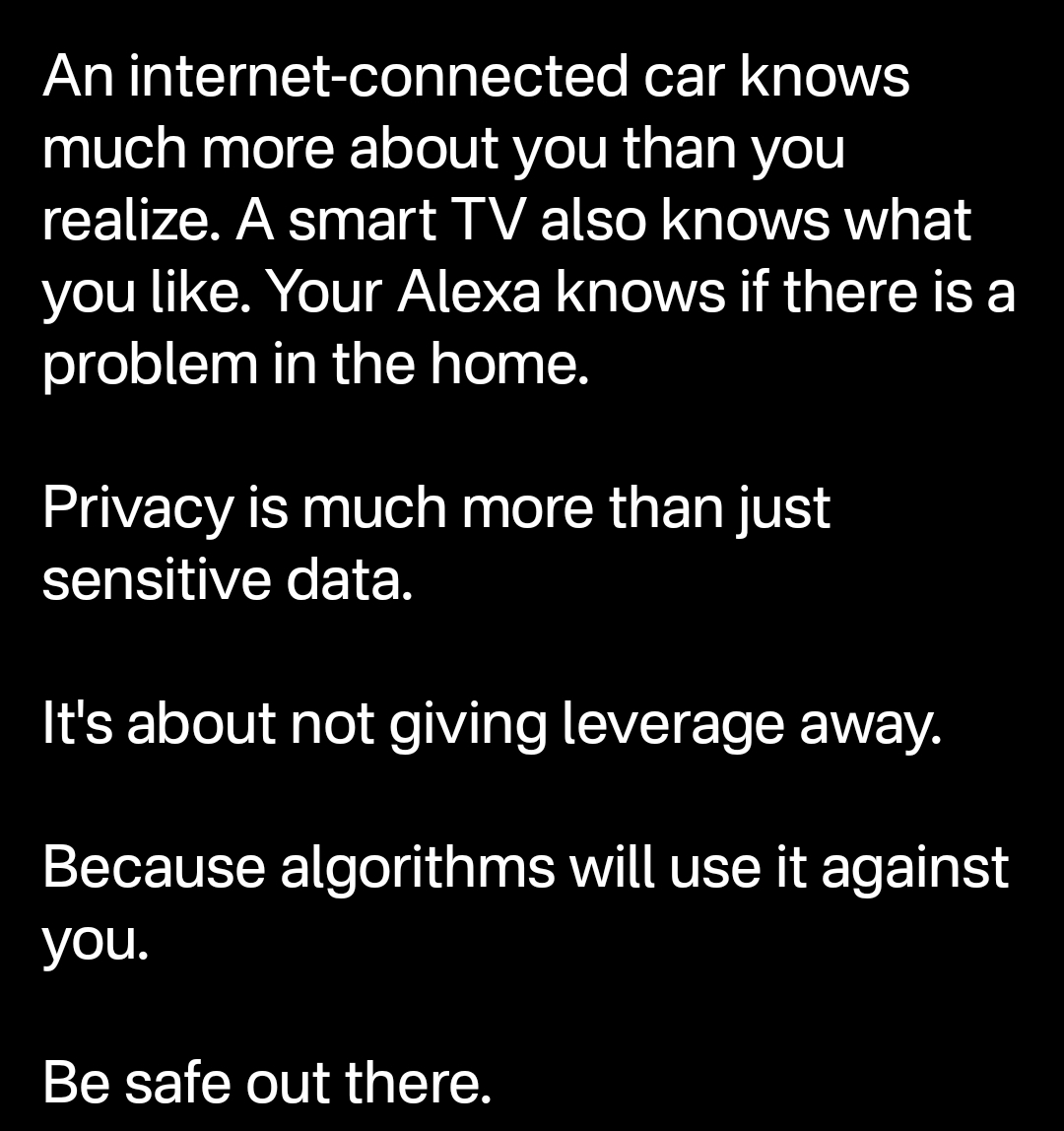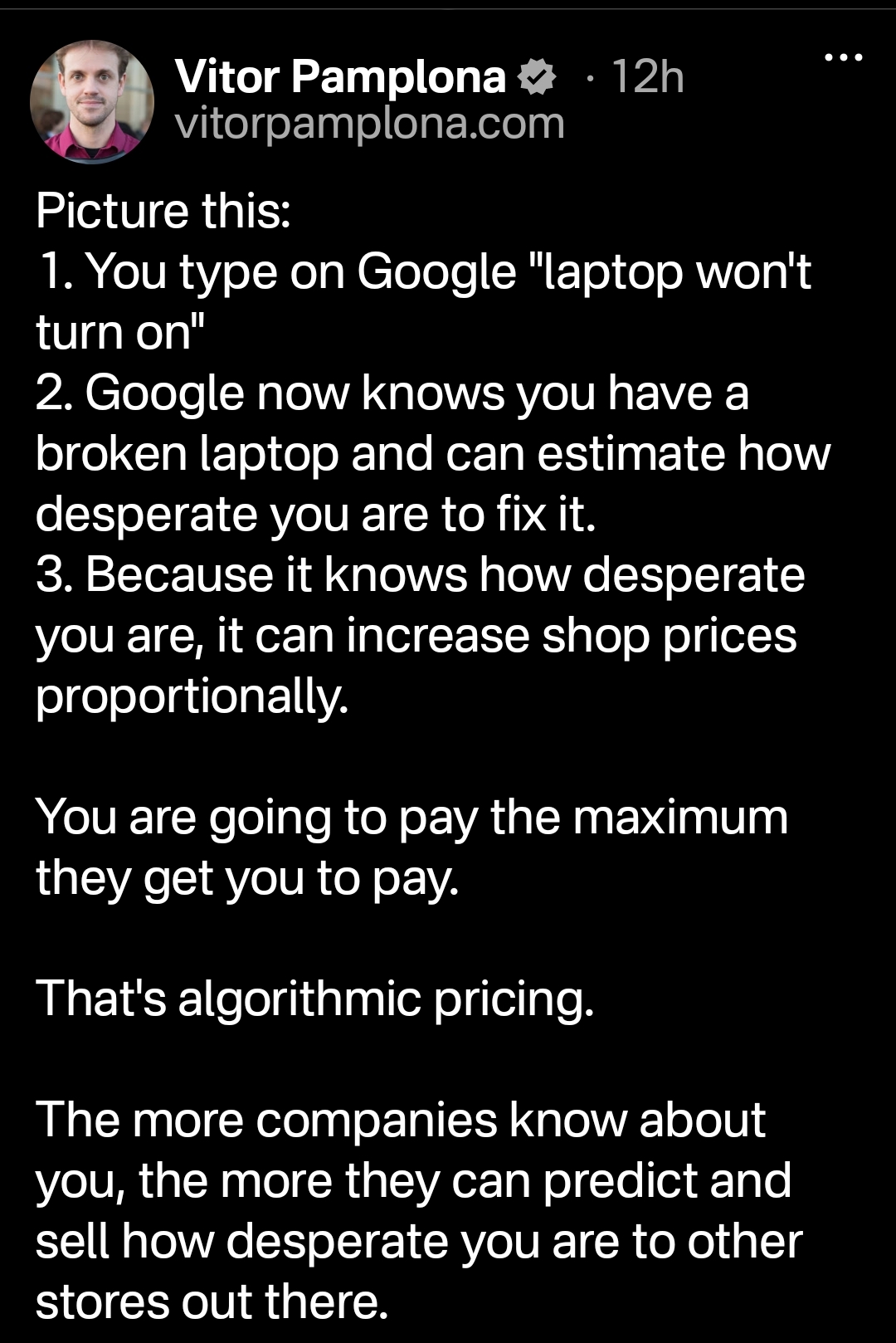this post was submitted on 15 Sep 2024
1398 points (97.3% liked)
Microblog Memes
6583 readers
1719 users here now
A place to share screenshots of Microblog posts, whether from Mastodon, tumblr, ~~Twitter~~ X, KBin, Threads or elsewhere.
Created as an evolution of White People Twitter and other tweet-capture subreddits.
Rules:
- Please put at least one word relevant to the post in the post title.
- Be nice.
- No advertising, brand promotion or guerilla marketing.
- Posters are encouraged to link to the toot or tweet etc in the description of posts.
Related communities:
founded 2 years ago
MODERATORS
you are viewing a single comment's thread
view the rest of the comments
view the rest of the comments


And the health apps know when you're sleeping, they know your heartrate throughout the day, your o2 sats. They can take all this mortality risk data to factor in things, advertise drugs to you, advertise foods they know you'll eat even though it's bad, manipulate how your insurance pays out for your next treatment because it would have been preventable if you hadn't eaten those donuts. The phone manufacturers know you run apps, how long, what you do (yes, even Apple, especially Apple, they hide behind "privacy" so you feel ok with what they do to you) what web pages you open, how long you view them.
They could biometrically paint a picture of your day, your movement, there's an entire profile of data available on many humans. I wouldn't be surprised if they aren't already tying heart rate data to viewership of media and advertising.